Ismail Ali is the Policy & Advocacy Counsel for the Multidisciplinary Association for Psychedelic Studies (MAPS), where his job is to advocate for the elimination of barriers to psychedelic therapy and research by developing and implementing legal and policy strategy. Ali joined Voices of Esalen’s Sam Stern recently for a wide-ranging discussion about the future of drug policy reform in the United States. Read on for our top three takeaways from their discussion, and then click over to listen to the podcast episode if you’d like to hear more.
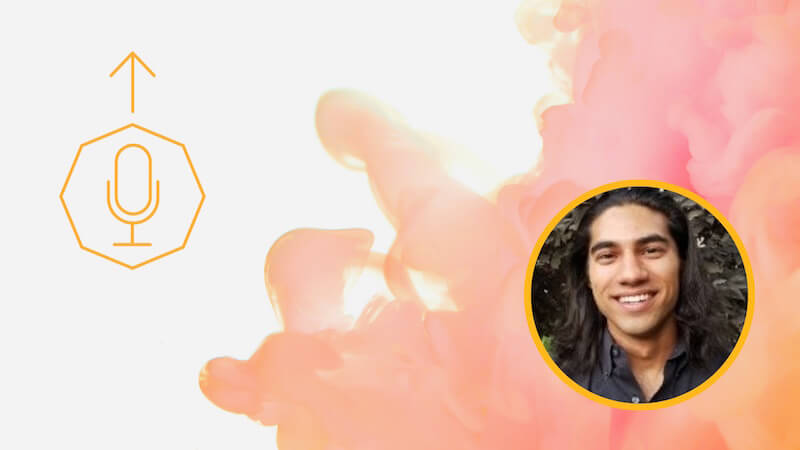
Ali laid out a compelling case for why therapeutic psychedelics might well become legally available sooner rather than later. He cited the recent bills that passed in Oregon that decriminalized drugs and created a regulated system for psilocybin services (“drug policy was like the Belle of the ball that week!”) as well five states legalizing cannabis as cause for “cautious optimism.”
Ali also credits the unique model MAPS is built upon — a public benefit corporation that’s owned by a non-profit — as cause for hope: “We’re in a position with this hybrid organization that we can pursue our drug development work entirely on donations....We will have probably approved MDMA for about a hundred million dollars — not a small amount of money, but it's quite small relative to the way that many new drugs are developed and put to the market.” MAPS’ status as a non-profit also allows them to do something that many corporations are hesitant to do, he said: “We can push back against the FDA.”
The conversation around psychedelics is more nuanced than that around, say, cannabis, Ali explained: “I actually have noticed that with respect to other psychedelics and other medicines, there's been a lot less stigma and a lot less political baggage.”
He surmised that the accepting conversation around the legalization of psychedelics might stem from a lack of familiarity with words like “psilocybin,” increasing concern about the impact on mental health of recent societal traumas, or some combination of both. “One of the most interesting things I find,” he concludes, “is that I don't have to do as much persuasion as I thought I would have to do.”
“A lot of people are semi-familiar with the racialized history of drug prohibition over the last hundred or more years,” Ali explained. “But I think it started with the colonization of what we call the new world. Modern western culture emerged out of that, which involved genocide, involved slavery, but one of the things that's sometimes lost is the amount of cultural genocide that occurred, which is not just the killing of people, but it's also the eradication of concepts and culture, history, society and so on ... I think that on a really big scale, there's a reclaiming that's happening.”
And then there’s the question of unequal access to the potential new therapies under discussion. “There's a spectrum of how trauma has impacted society, and trauma has impacted certain demographics more than others,” Ali continued. “We have good evidence that people who are experiencing racialized trauma or gender-based violence are highly impacted by that trauma. These things all kind of compound on each other. So the idea that we could have legal access to super expensive psychedelics that only rich people will get access to, that feels like an injustice.”
Intrigued by what you’re reading? Listen to Ali’s Voices of Esalen episode and subscribe to the podcast to hear more conversations like these! If you’d like to dig even deeper into psychedelic medicine and learn more first hand, check out Entheowheel: The Ceremony and Science of Psilocybin – An Educational Workshop and Experiential Event.
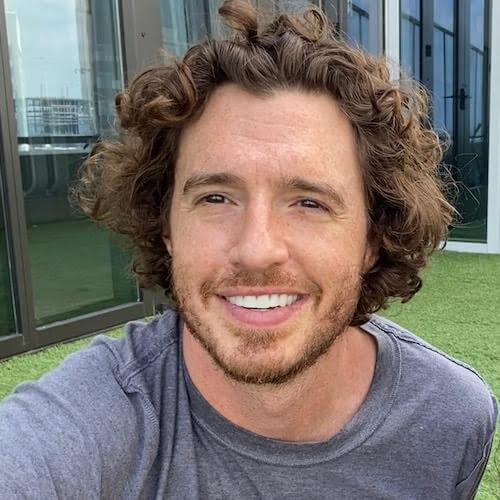
“Remembering to be as self compassionate as I can and praying to the divine that we're all a part of.”
–Aaron
“Prayer, reading, meditation, walking.”
–Karen
“Erratically — which is an ongoing stream of practice to find peace.”
–Charles
“Try on a daily basis to be kind to myself and to realize that making mistakes is a part of the human condition. Learning from our mistakes is a journey. But it starts with compassion and caring. First for oneself.”
–Steve
“Physically: aerobic exercise, volleyball, ice hockey, cycling, sailing. Emotionally: unfortunately I have to work to ‘not care’ about people or situations which may end painfully. Along the lines of ‘attachment is the source of suffering’, so best to avoid it or limit its scope. Sad though because it could also be the source of great joy. Is it worth the risk?“
–Rainer
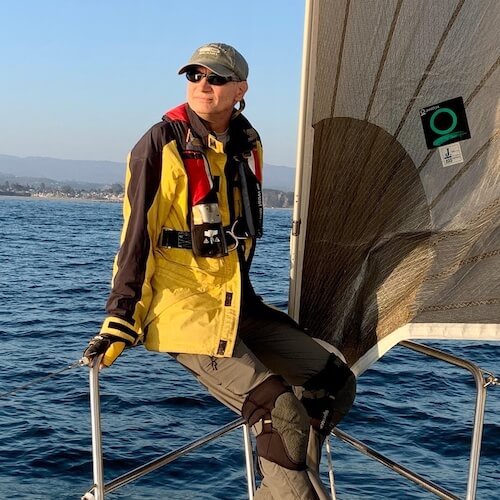

“It's time for my heart to be nurtured on one level yet contained on another. To go easy on me and to allow my feelings to be validated, not judged harshly. On the other hand, to let the heart rule with equanimity and not lead the mind and body around like a master.”
–Suzanne
“I spend time thinking of everything I am grateful for, and I try to develop my ability to express compassion for myself and others without reservation. I take time to do the things I need to do to keep myself healthy and happy. This includes taking experiential workshops, fostering relationships, and participating within groups which have a similar interest to become a more compassionate and fulfilled being.“
–Peter
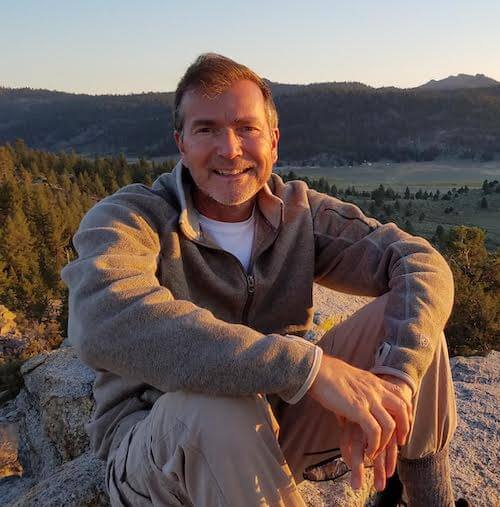
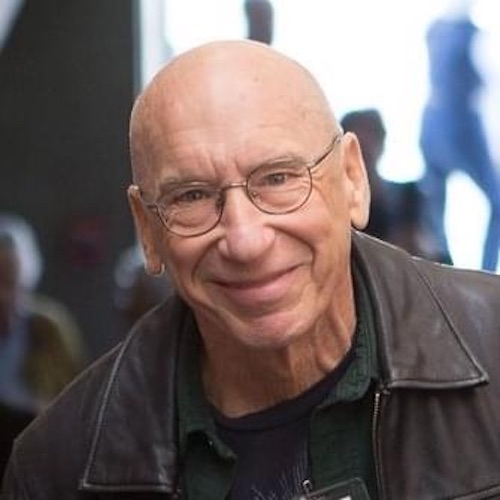
“Self-forgiveness for my own judgments. And oh yeah, coming to Esalen.”
–David B.
“Hmm, this is a tough one! I guess I take care of my heart through fostering relationships with people I feel connected to. Spending quality time with them (whether we're on the phone, through messages/letters, on Zoom, or in-person). Being there for them, listening to them, sharing what's going on with me, my struggles and my successes... like we do in the Esalen weekly Friends of Esalen Zoom sessions!”
–Lori

“I remind myself in many ways of the fact that " Love is all there is!" LOVE is the prize and this one precious life is the stage we get to learn our lessons. I get out into nature, hike, camp, river kayak, fly fish, garden, I create, I dance (not enough!), and I remain grateful for each day, each breath, each moment. Being in the moment, awake, and remembering the gift of life and my feeling of gratitude for all of creation.”
–Steven
“My physical heart by limiting stress and eating a heart-healthy diet. My emotional heart by staying in love with the world and by knowing that all disappointment and loss will pass.“
–David Z.
Today, September 29, is World Heart Day. Strike up a conversation with your own heart and as you feel comfortable, encourage others to do the same. As part of our own transformations and self-care, we sometimes ask for others to illuminate and enliven our hearts or speak our love language.
What if we could do this for ourselves too, even if just for today… or to start a heart practice, forever?
Ismail Ali is the Policy & Advocacy Counsel for the Multidisciplinary Association for Psychedelic Studies (MAPS), where his job is to advocate for the elimination of barriers to psychedelic therapy and research by developing and implementing legal and policy strategy. Ali joined Voices of Esalen’s Sam Stern recently for a wide-ranging discussion about the future of drug policy reform in the United States. Read on for our top three takeaways from their discussion, and then click over to listen to the podcast episode if you’d like to hear more.

Ali laid out a compelling case for why therapeutic psychedelics might well become legally available sooner rather than later. He cited the recent bills that passed in Oregon that decriminalized drugs and created a regulated system for psilocybin services (“drug policy was like the Belle of the ball that week!”) as well five states legalizing cannabis as cause for “cautious optimism.”
Ali also credits the unique model MAPS is built upon — a public benefit corporation that’s owned by a non-profit — as cause for hope: “We’re in a position with this hybrid organization that we can pursue our drug development work entirely on donations....We will have probably approved MDMA for about a hundred million dollars — not a small amount of money, but it's quite small relative to the way that many new drugs are developed and put to the market.” MAPS’ status as a non-profit also allows them to do something that many corporations are hesitant to do, he said: “We can push back against the FDA.”
The conversation around psychedelics is more nuanced than that around, say, cannabis, Ali explained: “I actually have noticed that with respect to other psychedelics and other medicines, there's been a lot less stigma and a lot less political baggage.”
He surmised that the accepting conversation around the legalization of psychedelics might stem from a lack of familiarity with words like “psilocybin,” increasing concern about the impact on mental health of recent societal traumas, or some combination of both. “One of the most interesting things I find,” he concludes, “is that I don't have to do as much persuasion as I thought I would have to do.”
“A lot of people are semi-familiar with the racialized history of drug prohibition over the last hundred or more years,” Ali explained. “But I think it started with the colonization of what we call the new world. Modern western culture emerged out of that, which involved genocide, involved slavery, but one of the things that's sometimes lost is the amount of cultural genocide that occurred, which is not just the killing of people, but it's also the eradication of concepts and culture, history, society and so on ... I think that on a really big scale, there's a reclaiming that's happening.”
And then there’s the question of unequal access to the potential new therapies under discussion. “There's a spectrum of how trauma has impacted society, and trauma has impacted certain demographics more than others,” Ali continued. “We have good evidence that people who are experiencing racialized trauma or gender-based violence are highly impacted by that trauma. These things all kind of compound on each other. So the idea that we could have legal access to super expensive psychedelics that only rich people will get access to, that feels like an injustice.”
Intrigued by what you’re reading? Listen to Ali’s Voices of Esalen episode and subscribe to the podcast to hear more conversations like these! If you’d like to dig even deeper into psychedelic medicine and learn more first hand, check out Entheowheel: The Ceremony and Science of Psilocybin – An Educational Workshop and Experiential Event.

“Remembering to be as self compassionate as I can and praying to the divine that we're all a part of.”
–Aaron
“Prayer, reading, meditation, walking.”
–Karen
“Erratically — which is an ongoing stream of practice to find peace.”
–Charles
“Try on a daily basis to be kind to myself and to realize that making mistakes is a part of the human condition. Learning from our mistakes is a journey. But it starts with compassion and caring. First for oneself.”
–Steve
“Physically: aerobic exercise, volleyball, ice hockey, cycling, sailing. Emotionally: unfortunately I have to work to ‘not care’ about people or situations which may end painfully. Along the lines of ‘attachment is the source of suffering’, so best to avoid it or limit its scope. Sad though because it could also be the source of great joy. Is it worth the risk?“
–Rainer


“It's time for my heart to be nurtured on one level yet contained on another. To go easy on me and to allow my feelings to be validated, not judged harshly. On the other hand, to let the heart rule with equanimity and not lead the mind and body around like a master.”
–Suzanne
“I spend time thinking of everything I am grateful for, and I try to develop my ability to express compassion for myself and others without reservation. I take time to do the things I need to do to keep myself healthy and happy. This includes taking experiential workshops, fostering relationships, and participating within groups which have a similar interest to become a more compassionate and fulfilled being.“
–Peter


“Self-forgiveness for my own judgments. And oh yeah, coming to Esalen.”
–David B.
“Hmm, this is a tough one! I guess I take care of my heart through fostering relationships with people I feel connected to. Spending quality time with them (whether we're on the phone, through messages/letters, on Zoom, or in-person). Being there for them, listening to them, sharing what's going on with me, my struggles and my successes... like we do in the Esalen weekly Friends of Esalen Zoom sessions!”
–Lori

“I remind myself in many ways of the fact that " Love is all there is!" LOVE is the prize and this one precious life is the stage we get to learn our lessons. I get out into nature, hike, camp, river kayak, fly fish, garden, I create, I dance (not enough!), and I remain grateful for each day, each breath, each moment. Being in the moment, awake, and remembering the gift of life and my feeling of gratitude for all of creation.”
–Steven
“My physical heart by limiting stress and eating a heart-healthy diet. My emotional heart by staying in love with the world and by knowing that all disappointment and loss will pass.“
–David Z.
Today, September 29, is World Heart Day. Strike up a conversation with your own heart and as you feel comfortable, encourage others to do the same. As part of our own transformations and self-care, we sometimes ask for others to illuminate and enliven our hearts or speak our love language.
What if we could do this for ourselves too, even if just for today… or to start a heart practice, forever?
Ismail Ali is the Policy & Advocacy Counsel for the Multidisciplinary Association for Psychedelic Studies (MAPS), where his job is to advocate for the elimination of barriers to psychedelic therapy and research by developing and implementing legal and policy strategy. Ali joined Voices of Esalen’s Sam Stern recently for a wide-ranging discussion about the future of drug policy reform in the United States. Read on for our top three takeaways from their discussion, and then click over to listen to the podcast episode if you’d like to hear more.

Ali laid out a compelling case for why therapeutic psychedelics might well become legally available sooner rather than later. He cited the recent bills that passed in Oregon that decriminalized drugs and created a regulated system for psilocybin services (“drug policy was like the Belle of the ball that week!”) as well five states legalizing cannabis as cause for “cautious optimism.”
Ali also credits the unique model MAPS is built upon — a public benefit corporation that’s owned by a non-profit — as cause for hope: “We’re in a position with this hybrid organization that we can pursue our drug development work entirely on donations....We will have probably approved MDMA for about a hundred million dollars — not a small amount of money, but it's quite small relative to the way that many new drugs are developed and put to the market.” MAPS’ status as a non-profit also allows them to do something that many corporations are hesitant to do, he said: “We can push back against the FDA.”
The conversation around psychedelics is more nuanced than that around, say, cannabis, Ali explained: “I actually have noticed that with respect to other psychedelics and other medicines, there's been a lot less stigma and a lot less political baggage.”
He surmised that the accepting conversation around the legalization of psychedelics might stem from a lack of familiarity with words like “psilocybin,” increasing concern about the impact on mental health of recent societal traumas, or some combination of both. “One of the most interesting things I find,” he concludes, “is that I don't have to do as much persuasion as I thought I would have to do.”
“A lot of people are semi-familiar with the racialized history of drug prohibition over the last hundred or more years,” Ali explained. “But I think it started with the colonization of what we call the new world. Modern western culture emerged out of that, which involved genocide, involved slavery, but one of the things that's sometimes lost is the amount of cultural genocide that occurred, which is not just the killing of people, but it's also the eradication of concepts and culture, history, society and so on ... I think that on a really big scale, there's a reclaiming that's happening.”
And then there’s the question of unequal access to the potential new therapies under discussion. “There's a spectrum of how trauma has impacted society, and trauma has impacted certain demographics more than others,” Ali continued. “We have good evidence that people who are experiencing racialized trauma or gender-based violence are highly impacted by that trauma. These things all kind of compound on each other. So the idea that we could have legal access to super expensive psychedelics that only rich people will get access to, that feels like an injustice.”
Intrigued by what you’re reading? Listen to Ali’s Voices of Esalen episode and subscribe to the podcast to hear more conversations like these! If you’d like to dig even deeper into psychedelic medicine and learn more first hand, check out Entheowheel: The Ceremony and Science of Psilocybin – An Educational Workshop and Experiential Event.

“Remembering to be as self compassionate as I can and praying to the divine that we're all a part of.”
–Aaron
“Prayer, reading, meditation, walking.”
–Karen
“Erratically — which is an ongoing stream of practice to find peace.”
–Charles
“Try on a daily basis to be kind to myself and to realize that making mistakes is a part of the human condition. Learning from our mistakes is a journey. But it starts with compassion and caring. First for oneself.”
–Steve
“Physically: aerobic exercise, volleyball, ice hockey, cycling, sailing. Emotionally: unfortunately I have to work to ‘not care’ about people or situations which may end painfully. Along the lines of ‘attachment is the source of suffering’, so best to avoid it or limit its scope. Sad though because it could also be the source of great joy. Is it worth the risk?“
–Rainer


“It's time for my heart to be nurtured on one level yet contained on another. To go easy on me and to allow my feelings to be validated, not judged harshly. On the other hand, to let the heart rule with equanimity and not lead the mind and body around like a master.”
–Suzanne
“I spend time thinking of everything I am grateful for, and I try to develop my ability to express compassion for myself and others without reservation. I take time to do the things I need to do to keep myself healthy and happy. This includes taking experiential workshops, fostering relationships, and participating within groups which have a similar interest to become a more compassionate and fulfilled being.“
–Peter


“Self-forgiveness for my own judgments. And oh yeah, coming to Esalen.”
–David B.
“Hmm, this is a tough one! I guess I take care of my heart through fostering relationships with people I feel connected to. Spending quality time with them (whether we're on the phone, through messages/letters, on Zoom, or in-person). Being there for them, listening to them, sharing what's going on with me, my struggles and my successes... like we do in the Esalen weekly Friends of Esalen Zoom sessions!”
–Lori

“I remind myself in many ways of the fact that " Love is all there is!" LOVE is the prize and this one precious life is the stage we get to learn our lessons. I get out into nature, hike, camp, river kayak, fly fish, garden, I create, I dance (not enough!), and I remain grateful for each day, each breath, each moment. Being in the moment, awake, and remembering the gift of life and my feeling of gratitude for all of creation.”
–Steven
“My physical heart by limiting stress and eating a heart-healthy diet. My emotional heart by staying in love with the world and by knowing that all disappointment and loss will pass.“
–David Z.
Today, September 29, is World Heart Day. Strike up a conversation with your own heart and as you feel comfortable, encourage others to do the same. As part of our own transformations and self-care, we sometimes ask for others to illuminate and enliven our hearts or speak our love language.
What if we could do this for ourselves too, even if just for today… or to start a heart practice, forever?